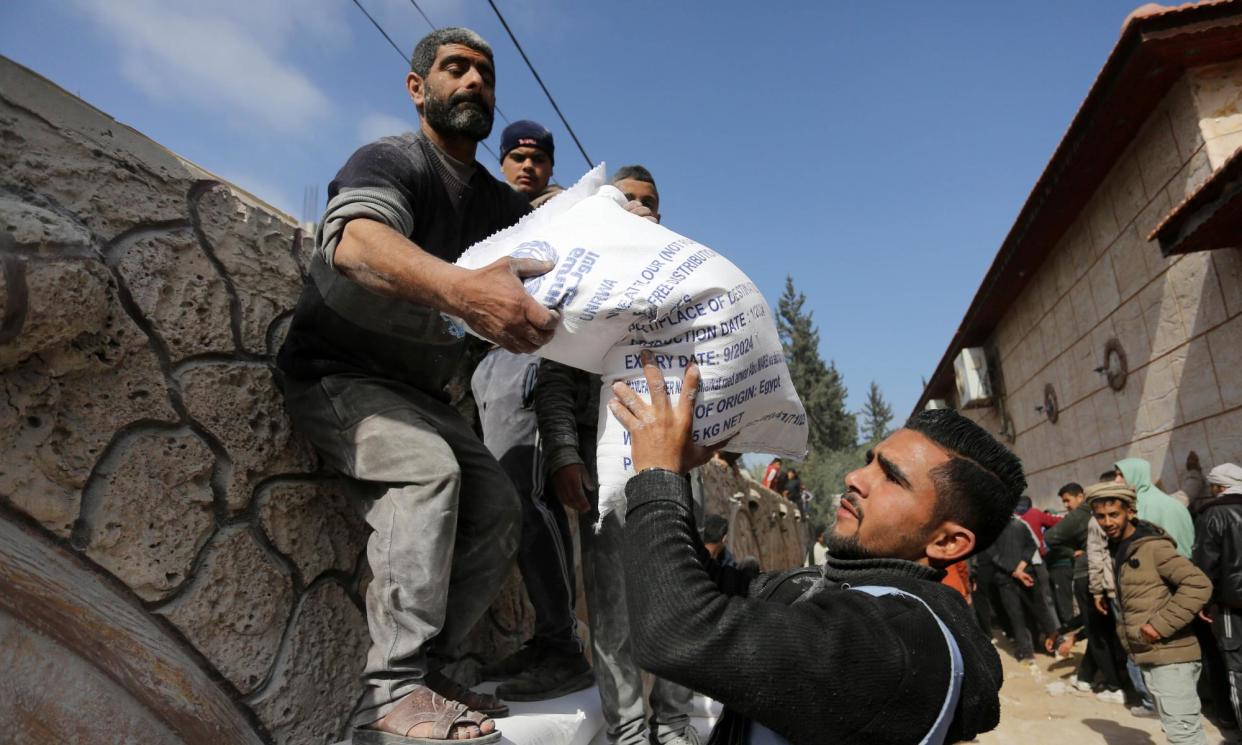UN experts condemn Israeli ‘massacre’ of Palestinians collecting flour

UN experts have condemned the violence they say was unleashed by Israeli forces last week on Palestinians gathered in Gaza City to collect flour as a “massacre”.
In a statement, a group of UN special rapporteurs accused Israel of “intentionally starving the Palestinian people in Gaza since 8 October,” adding: “Now it is targeting civilians seeking humanitarian aid and humanitarian convoys.”
“Israel must end its campaign of starvation and targeting of civilians,” said the UN experts, who warned there was mounting evidence of famine in the Gaza Strip.
At least 112 people died and 760 were injured on Thursday when desperate crowds gathered to collect flour.
Witnesses in Gaza and some of the injured said Israeli forces opened fire on the crowd, causing panic. Israel said people died in a crush or were run over by aid lorries although it admitted its troops had fired on what it called a “mob”.
“The attack came after Israel has denied humanitarian aid into Gaza City and northern Gaza for more than a month,” said the experts, who described “a pattern of Israeli attacks against Palestinian civilians seeking aid”.
There have been at least 14 similar reported incidents between mid-January and the end of February of the shooting, shelling and attacking of Palestinians who had gathered to receive humanitarian aid from trucks or airdrops.
Since the start of the conflict, Israel has targeted Palestinian food sources and agriculture – bakeries, orchards and greenhouses – as well as blocked humanitarian supplies. On 26 January, the international court of justice recognised the plausibility of Israel committing genocide and ordered it to allow the delivery of urgently needed humanitarian services and aid to Palestinians. The number of trucks allowed to enter the Gaza Strip has since fallen to 57 a day – compared with an average of 147 a day before the ICJ ruling.
Last week, Michael Fakhri, the UN special rapporteur on the right to food, said that deliberating starving people amounted to war crimes and genocide under international law, for which the entire state of Israel was accountable.
At least 15 children have died from malnutrition at just one hospital, Kamal Adwan, in Gaza City. In January, one in six children under two in northern Gaza were found to be acutely malnourished, which leads to wasting, Unicef found.
The World Health Organization said child malnutrition in north Gaza was now “extreme”.
“When children start dying like this, you know that famine is probably already happening or just around the corner. We are alarmed to see an entire civilian population suffering such unprecedented starvation, so quickly and completely,” they said. “We have been saying for months that widespread famine is imminent in Gaza.”
On Tuesday, it was reported that an elderly Palestinian man identified as Abd al-Rahman al-Dahdouh was pronounced dead due to hunger and dehydration.
As desperation and malnutrition rises, the US, Israel’s closest and most powerful ally, has resorted to air dropping humanitarian supplies – an expensive and ineffective way of delivering aid.
“After months of Israel’s starvation campaign … recent airdrops will achieve little. The only way to prevent or end this famine is an immediate and permanent ceasefire,” said the UN experts on food, water, violence against women, and Francesca Albanese, the special rapporteur on the situation of human rights in the Palestinian Territory occupied since 1967, among others.
Under international law, the unconditional provision of humanitarian supplies such as food, water, shelter and medicine is a basic obligation during conflict.
Yet recent reports on the talks between Hamas and Israel on a proposed 40-day ceasefire suggest that as part of the terms of the negotiations, Israel has pledged to allow the entry of trucks and the delivery of tents, caravans, essential fuel, and construction materials to fix critical infrastructure such as hospitals and bakeries.
“Humanitarian aid must not be used as a bargaining chip in negotiations,” the experts said. “We reiterate our earlier call for an arms embargo and sanctions on Israel, as part of all states’ duty to ensure respect for human rights and stop violations of international humanitarian law by Israel.”


